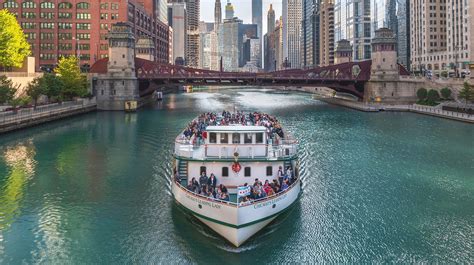Street photography is legal in Florida, however, there are a few laws that photographers should be aware of to help ensure that they can legally capture photos of people and public spaces. In Florida, there are several laws that photographers should take into consideration when shooting in public spaces, including laws concerning voyeurism, privacy, copyright, trespass, and public spaces.
Voyeurism is the act of taking photos without consent. Florida Statutes 794.03 makes it illegal to photograph a person in any private place without their consent. Photographers should always ask permission when photographing people in public spaces. If photographing people who are in visible distress or a vulnerable position, such as a homeless person or a child, photographers must be especially mindful of the privacy laws.
Copyright law is also something that photographers should consider when taking photos in public spaces. Under the Copyright Act of 1976, photographers own the copyright to their work. This means that others cannot reproduce or use their photos without the photographer’s permission. Photographers should be aware that public spaces are not always 100% free from copyright infringement.
When shooting on public property, photographers should always be aware of trespass law. Trespassing laws vary from state to state, but in Florida, it is illegal to enter or stay on someone else’s property without their permission. Photographers should research the location they are shooting in and make sure that they have the property owner’s permission to shoot there.
In addition to the laws listed above, photographers should be aware of the regulations concerning public spaces. In Florida, public spaces are defined by the state as places that are open to the public, such as parks, beaches, and sidewalks. Photographers have the right to take photos in public spaces, but they should be aware of any restrictions that the location may have. For example, some parks may have restrictions on the use of tripods, drones, or other equipment that could be used for street photography.
Photographers should always be aware of the laws and regulations concerning street photography in Florida. Following the laws and being respectful of people’s privacy will ensure that photographers can safely and legally take photos in the state.
Exploring The Legality Of Street Photography In Florida
As a photographer, you may be wondering if street photography is legal in Florida. The answer is that it depends on the situation and circumstances. Street photography generally does not require a permit or prior authorization, but there are some exceptions that you should be aware of. It is important to always be aware of your local laws and regulations.
The legal definition of street photography in Florida is photography that is taken in any public place where people are present and within the scope of the photographer’s vision. A public place is one that is open to the public, such as a park or street. A photographer can take pictures of people who are in a public place, but they must have the permission of the person to do so. If the person does not give permission, then the photographer must take the picture from a reasonable distance. If the person is not in a public place, then the photographer must have the consent of the owner of the property to take photos.
The Florida Department of Law Enforcement (FDLE) has a few rules that photographers should follow when taking street photos. Photographers should be aware of the fact that there are certain sensitive areas that may require the consent of the owner or other persons before taking photos. These areas include military installations, nuclear power plants, and government buildings. Photographers should also be aware of the fact that they may face criminal or civil charges if they take pictures of people in a manner that is considered to be intrusive or offensive.
When it comes to the use of recordings, such as audio or video, the FDLE requires photographers to get prior authorization from all persons involved before recording. This is to ensure that the privacy of all persons involved is respected. Photographers should also be aware that there are some areas where photography is explicitly prohibited. These areas include private residences, airports, and other secure areas.
It is important to keep in mind that even though it is allowed to take pictures in public places, there are certain restrictions that must be followed. In addition to getting permission from the people in the photographs, photographers should also be aware of any local ordinances that may restrict their photography activities. Photographers should always respect the privacy of all individuals who may be in the photographs they take.
In conclusion, street photography is generally legal in Florida as long as the photographer follows the rules and regulations set forth by the FDLE and local ordinances. Photographers should always remember to respect the privacy of all persons involved and obtain prior authorization before taking recordings of any kind.
Navigating The Legalities Of Street Photography In Florida
In Florida, understanding the legalities of street photography can feel like a daunting task. Street photography is a popular and growing art form, but it can be difficult to determine what is and isn’t legal. The state of Florida has a few laws governing the use of street photography, and understanding them is essential for any photographer.
In Florida, it is legal to take photographs of a person in a public place. However, there are some restrictions. For example, if a person is in a place or situation where they have a reasonable expectation of privacy, such as a dressing room or bathroom, then it is not legal to take a photograph without their permission. Furthermore, it is illegal to use a photograph of a person in a commercial setting without their written consent.
In addition, it is important to be aware of other laws regarding the use of street photography. For instance, it is illegal to take photographs of private property without the owner’s permission. Furthermore, it is illegal to publish a photograph of a person without their permission, even if the photograph was taken in a public place. Additionally, it is illegal to use photographs of a person in a way that could be considered defamatory or offensive.
Overall, it is important to be aware of the laws governing street photography in Florida. While it is generally legal to take photographs of people in public places, there are some restrictions. Photographers should always ask for permission when photographing a person, and should be aware of other laws regarding the use of street photography. By understanding the legalities of street photography, photographers can ensure that their work is in compliance with the law.
| Topic | Summary |
|---|---|
| Photographing people in public places | Generally legal, but there are some restrictions |
| Photographing private property | Illegal without the owner’s permission |
| Using photographs of people | Illegal without written consent, and must not be offensive or defamatory |
 Road Topic Tourism & Travel
Road Topic Tourism & Travel




